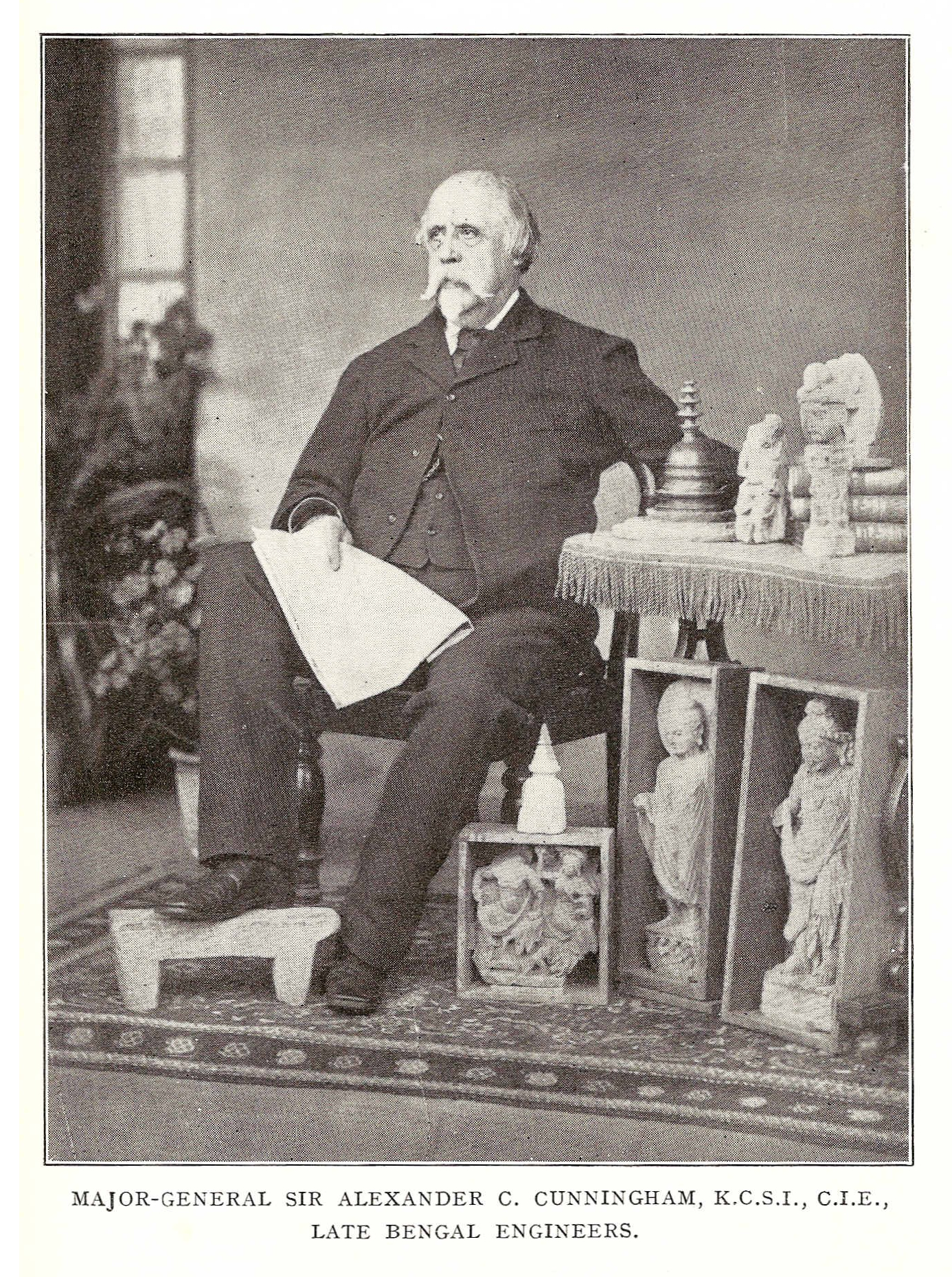Sir Alexander Cunningham
| Alexander Cunningham | |
|---|---|
 |
|
| Born | 23 January 1814 London |
| Died |
28 November 1893 (aged 79) London |
| Nationality | British |
| Occupation |
|
| Spouse(s) | Alice Cunningham (married 1840) |
| Children |
|
| Parent(s) |
|
| Relatives |
|
Sir Alexander Cunningham KCIE CSI (23 January 1814 – 28 November 1893) was a British army engineer with the Bengal Engineer Group who later took an interest in the history and archaeology of India. In 1861 he was appointed to the newly created position of archaeological surveyor to the government of India; and he founded and organised what later became the Archaeological Survey of India. He wrote numerous books and monographs and made extensive collections of artefacts. Some of his collections were lost, but most of the gold and silver coins and a fine group of Buddhist sculptures and jewellery were bought by the British Museum in 1894.
Cunningham was born in London in 1814 to the Scottish poet Allan Cunningham (1784–1842) and his wife Jean née Walker (1791–1864). Along with his older brother, Joseph, he received his early education at Christ's Hospital, London. Through the influence of Sir Walter Scott, both Joseph and Alexander obtained cadetships at the East India Company's Addiscombe Seminary (1829–31), followed by technical training at the Royal Engineers Estate at Chatham. Alexander joined the Bengal Engineers at the age of 19 as a Second Lieutenant and spent the next 28 years in the service of British Government of India. Soon after arriving in India on 9 June 1833, he met James Prinsep. He was in daily communication with Prinsep during 1837 and 1838 and became his intimate friend, confidant and pupil. Prinsep passed on to him his lifelong interest in Indian archaeology and antiquity.
From 1836 to 1840 he was ADC to Lord Auckland, the Governor-General of India. During this period he visited Kashmir, which was then not well explored. He finds mention by initials in Up the Country by Emily Eden.
...
Wikipedia
